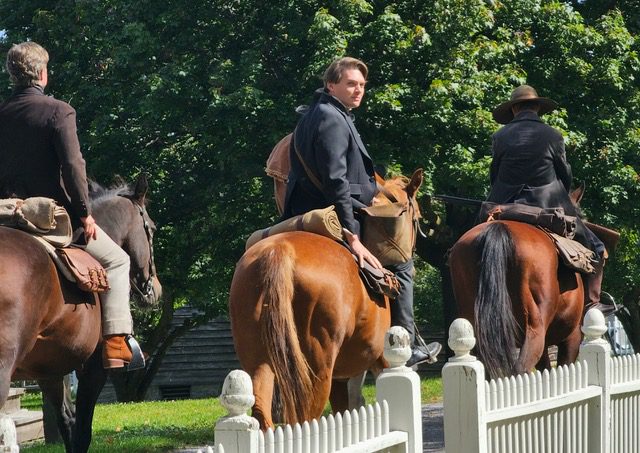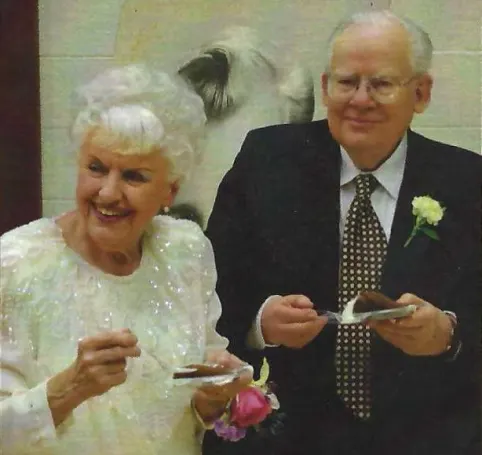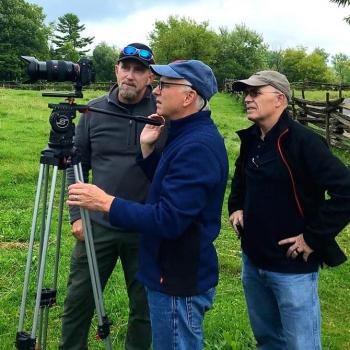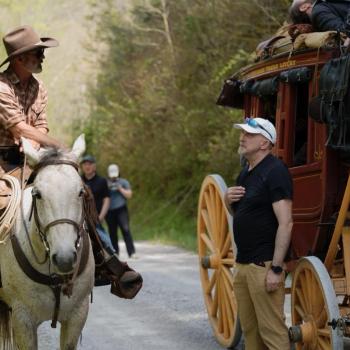
Correcting the falsehoods regularly purveyed by my Malevolent Stalker and his handful of zealous disciples over at the Peterson Obsession Board could easily be a full-time job if I permitted it to be. Sometimes, though, I do find it advisable to publicly contradict their allegations and accusations. Now is one of those times. I’ll be brief:
- No, my wife and I receive no compensation — we have received no compensation, and we will receive no compensation — from our time and efforts as the two executive producers of Six Days in August. Our income from the film will not vary so much as a single cent whether fifty million people see the film or nobody does. Both of us do what we do as unpaid volunteers. In fact, we’re donors.
- Was I or anybody else connected with the film unethically given access to Brigham Young University’s list of donors? No. Neither I nor anybody else connected with the film was given any access at all to Brigham Young University’s list of donors. Did we somehow illicitly obtain BYU’s donor list? No. We don’t have BYU’s donor list at all. I’ve never so much as seen it.
- I’ve referred on occasion to recent criticisms of Brigham Young, to which I hope that Six Days in August will offer a contrast. Contrary to the claims of a few on the Obsession Board, I haven’t invented these criticisms. Nor do I have the Community of Christ, formerly known as the Reorganized Church of Jesus Christ of Latter Day Saints, in mind. Not even slightly. I have in mind accusations against Brigham Young of racism, misogyny, autocracy, and even, ever since the nineteenth-century days of sensationalistic dime novels, of murder. I have in mind the claim that he led an illegitimate and rather Machiavellian “apostolic coup.” Some of these accusations have even come from members of the very Church over which he presided for more than three decades. (LaJean Carruth quite aptly calls them “Brigham bashing.”) And, unfortunately, at least a few readers here will be aware of recent assertions — to me, not only unjustifiable and false but positively revolting — that it was Elders John Taylor and Willard Richards of the Twelve, not an armed mob with blackened faces, who murdered Joseph and Hyrum Smith in Carthage Jail, and that they did so at the command of the president of their quorum. Brigham Young.
- Is Six Days in August an attack on the Community of Christ? No, it is not. It is true, of course, that I and the others involved in the creation of the film believe that the Twelve Apostles were the proper choice to lead the Church of Jesus Christ of Latter-day Saints following the death of Joseph and Hyrum Smith. Implicitly, that means that we do not believe that Joseph Smith III was the proper choice. But Joseph III doesn’t even figure in the story we’re telling. He was only eleven years old in August of 1844. Nor does James Strang appear in the film, as he was scarcely so much as a rumor by that date. The major rival to the Twelve in our story is Sidney Rigdon. But, by deliberate decision, Six Days in August will treat even Sidney with respect. Favoring the Twelve doesn’t mean disdaining others, let alone hating them, any more than favoring Beethoven means condemning Brahms, any more than being a practicing Jew means despising Christians, any more than preferring Jane Austen and apple pie entails abhorring cherry pie and Charles Dickens.
- Is the Interpreter Foundation at war with, or in a competitive rivalry with, FAIR and Scripture Central? No. Not in any sense of which I’m aware. If we were in a battle with each other, I can’t imagine that Scripture Central would have flown me back to Palmyra, Harmony, and Kirtland two or three months ago to film one of the episodes in their video series A Marvelous Work, or that Jeff Bradshaw (one of the Interpreter Foundation’s vice presidents) and I would have been featured speakers at the annual FAIR LDS conference earlier this month, or that the leaders of Scripture Central and Interpreter and FAIR would hold a monthly online coordinating meeting.
In my considerable experience as their perpetual target over the past two decades, there seems to be little if any interest in the truth among the anonymous folks there who love and make lies. (See Revelation 22:15.)

My wife and I attended the funeral for George Mitton this morning. Two of the Interpreter Foundation’s vice presidents — Steve Densley and Jeff Bradshaw — were also there, as was Shirley Ricks, a member of Interpreter’s board. My decades-long friend Jack Welch also attended, with his wife, and so did Lou Midgley, our good friend and George’s. Both Lou and George were present at the creation of Interpreter.
I remain of the opinion that a good funeral is one of the best meetings in the Church. And this was a really good one, full of faith and confidence and good music and humor. (At Hugh Nibley’s service, one of his daughters remarked that it was high time to put the fun back in funeral. This one certainly did that.). George is fortunate in having committed, active Latter-day Saint children who organized and spoke at his farewell.
One story that struck me involved the marriage of George and his wife. Ewan Harbrecht came to know President David O. McKay when she accompanied the Mormon Tabernacle Choir for its 1955 European tour, which culminated in the dedicatory services in Zollikofen bei Bern, in Switzerland, for the historic first temple in Europe. At one point, President McKay told Ewan that, when she got married, he would like to perform the ceremony.
As her wedding approached, Ewan had a dream in which she saw herself being married in a room where she could see ancestors stretching off into the indefinite distance and, on the other, descendants extending, seemingly without end. She also clearly saw the date, which was 19 June.
So she contacted President McKay’s secretary, who replied that the twentieth of June was the only day in the month that he would be available. Ewan was deeply disappointed, and even troubled. She wrote back, asking the secretary whether she might check again. This time, the response came back that there had been a mistake: The only day in the month that he was available was not 20 June, but 19 June.
I loved a scriptural passage that was cited by one of the speakers:
And it came to pass that there were many who died, firmly believing that their souls were redeemed by the Lord Jesus Christ; thus they went out of the world rejoicing. (Alma 46:39
What a great theme for the funeral of a faithful Latter-day Saint in a faithful, covenant-keeping community! The service was conducted by the first counselor in the branch presidency that serves the Legacy Village facility. He reported that, in their branch, they don’t talk about people “dying” or “passing” but, rather, about people “graduating.” I love that.













